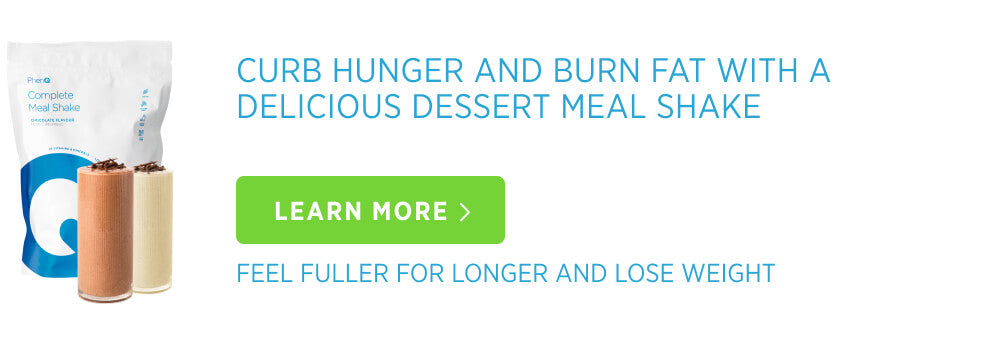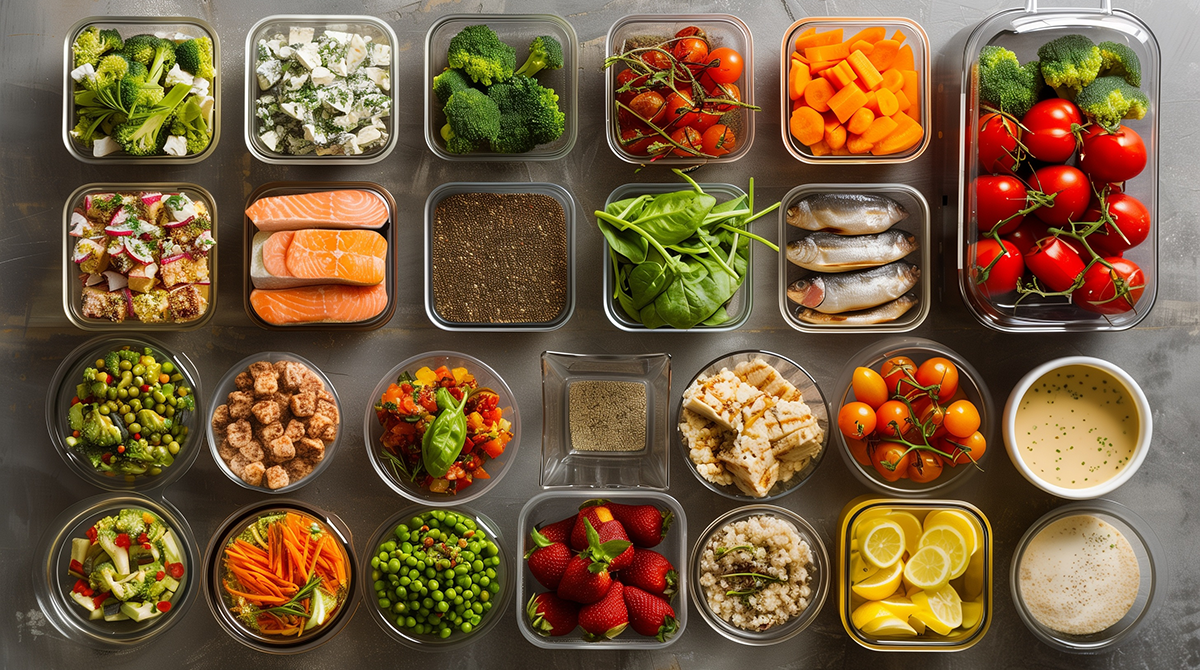Can you really lose weight by feasting and fasting on alternate days? Let’s find out!
The fast and feast diet, also known as the ‘feast and famine diet’, has been gaining popularity in recent years. The diet suggests if you alternate between feasting and fasting – that is, eating a lot on one day and eating next to nothing the next, you’ll lose weight.
The ‘feast fast’ diet may be effective for some people, but there are certainly some health implications that you’ll want to take into consideration before you start to undertake this diet on your own. This article will inform you about whether or not this diet actually works and how you can enjoy feasting and fasting without risking your health.
Table of Contents
- What is the fast and feast diet?
- How does the fast and feast diet help you lose weight
- Examples of a fast and feast diet plan
- Benefits of the fast and feast diet
- Downsides of the fast and feast diet
What is the fast and feast diet?
There are lots of low calorie diets out there, but the fast and feast diet is a relatively old concept that has been given a new name. A fast and feast diet is basically a form of intermittent fasting, though taken to slightly more extreme measures than one would typically take intermittent fasting.
This diet is interesting because it combines two extremes in dieting: feasting and fasting.
- Feasting, or consuming large amounts of food, is generally associated with weight gain and health issues.
- Fasting, or consuming little to no food, is generally considered an extreme approach to weight loss. Alternatively, fasting is used as a spiritual or religious tool to help bring awareness into the body.
The fact that the feast and famine diet combines both of these seemingly opposite ideas into one diet plan makes it very interesting.
The name is a bit of a misnomer, however. Not everyone who engages in the feast or fast diet needs to gorge one day and avoid food entirely the next. The basic premise of the diet is that one day allows you to eat whatever you want, and the next day you have to restrict your calorie consumption to a set limit.
The specifics of the diet depends on you and your preferences. Some people prefer to avoid eating entirely on one day, whereas others prefer to limit the hours that they can eat food.
How does the fast and feast diet help you lose weight

If you’re wondering how the feast fast diet like this makes any sense, you’re not alone. Fortunately, there is some degree of evidence that suggests there may actually be something to the feast and fast diet.
One of the reasons that this works is because you’re basically tricking your body to go into starvation mode. When this occurs, your body won’t have any stores of glucose, which is what we typically use for energy. Instead, your body will be forced to burn off fat for energy. This is basically the same thing that happens when you do enough cardiovascular exercise to burn through your glucose stores.
One of the reasons that intermittent fasting might do this is because it can reduce the amount of insulin in your body. Insulin is involved in helping the body break down carbohydrates into a usable form of energy – glucose. When we’re not eating, the body produces less glucose.
Another thing that happens when you’re in a state of fasting is that your body releases more adrenaline and noradrenaline. This means that you’ll have a sharper mind and may find yourself more stimulated – a great excuse to get out there and tackle your exercise routine.
Examples of a fast and feast diet plan
There are a number of different ways that you can approach this diet.
-
Fasting. Some people prefer to fast for an entire day, whereas others prefer to time their fasting so that they can eat a bit every day. The idea here is to make sure that you’re fasting for at least 16 hours at a time. If you want to do this and eat food every day, this generally means that you need to skip two meals a day so there’s at least 16 hours in between your meals.Many people prefer to skip breakfast and lunch. This allows them to eat dinner. Unfortunately, food is not digested as well at night, so you might want to consider skipping lunch & dinner instead.
- Feasting. The general rule for the ‘feasting’ side of the diet is that you’re allowed to eat whatever you want during the first hour of your feast. There aren’t any food restrictions while you’re on the fast and feast diet – though common sense obviously dictates that if you jam your face full of ice cream, refined carbs and saturated fats for this hour you’ll be counteracting any of the benefits of the diet.To ensure that you get the most out of your diet, you’ll want to make sure that you eat high-quality foods. Get fresh, organic vegetables whenever possible and cook your meals fresh. Eat slowly, making sure to chew your food – you’ll be surprised to find out how hard this can be if you haven’t eaten for 16 hours.
If you’re going to follow the routine of eating one meal a day, then you’ll want to make sure that you give yourself enough fuel to last throughout the day. This is another reason that skipping breakfast and lunch is unwise – if you only ever eat dinner, much of the nutrition from that meal will be processed and used while you’re sleeping.
A good idea would be to have a hearty breakfast, full of protein, complex carbohydrates, and fibre. This could be something like a meal with two eggs, tofu scramble, some whole-grain or sprouted toast with flaxseed oil and some grilled sweet potatoes.
One thing to keep in mind when you’re following this diet is that you’ll probably want to drink a lot of water. Not only will this keep you hydrated but it can help keep your stomach full so you won’t be worrying about eating all the time.
Benefits of the fast and feast diet
If you follow a proper fast and feast diet, there are a number of benefits that you might experience. Some of the most well-understood benefits include:
-
Weight loss. The first and most obvious benefit of fasting and feasting is that you will lose weight. Due to the decrease in energy stores and reduced production of insulin, the body is quicker to burn fat.
-
Reducing risk of diabetes. Another thing that diabetes might be useful for is helping to reduce the risk of developing type 2 diabetes. This is, again, because of the reduction of blood glucose that a person will experience after they go on an intermittent fast. Some studies have indicated that this could be beneficial for people who are at risk of developing diabetes, such as obese people.
-
Improves the health of the heart. While not everyone who is participating in the feast and fast diet is doing it for the health of their heart, there is some evidence that intermittent fasting can help lower blood pressure, heart rate, and cholesterol – three things that are important for maintaining a healthy heart.
-
Improves cognitive ability. As mentioned earlier, intermittent fasting can cause the brain to produce more adrenaline which can improve the clarity of thinking. Furthermore, animal studies have shown that intermittent fasting can improve memory, learning ability, and reduce inflammation in the brain.
- Helps fight cancer. A pretty outlandish claim, there is actually some evidence that intermittent fasting can help slow the development of tumors in animals. Unfortunately there’s no evidence that supports this in humans yet.
Downsides of the fast and feast diet
While the benefits of intermittent fasting are pretty impressive, there are a lot of things that you’ll want to keep in mind that could deter you from wanting to pursue the diet.
You’ll be hungry all the time. At least for a while. It takes time to get used to the sensation of having an empty stomach. However, remember that the sensation of having an empty stomach does not necessarily mean that you are nutritionally deprived!
You might not be able to do fast and feast with your medication. Some medications are supposed to be taken on a full stomach. This can be hard to work with if you’re only eating once a day and have to take medication several times a day.
It might impact your social life. If you frequently go out to eat with friends or family, intermittent fasting may get in the way of this.
Fortunately, these risks aren’t too serious. If you think that the fast and feast diet would work for you, there’s no reason that you shouldn’t at least give it a try.




